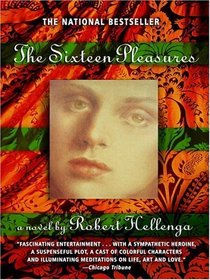Helpful Score: 3
I was originally interested in the title, but was happily surprised to find the story to be much more emotionally satisfying. This is a Life Journey, there are no grand sex scenes, but there are many wonderful, small moments in this woman's life that make it a pleasurable read. At times the story wanders, but whose life doesn't?
Helpful Score: 3
This book is one that I have given away again and again. If you are traveling to Florence it's a must read. If you are not traveling to Florence you will put Florence on yours bucket list when you read it. Hellenga's two great books are The Fall of the Sparrow (also given away many times) and The Sixteen Pleasures. I had to laugh reading the review the complained there wasn't any sex in THIS book. I read it over ten years ago and remember it as extremely erotic (FYI - Sparrow is FULL of sex). This is Hellenga at his best, combining philosophy, the Arts (high and low), and passion (high and low) to tell the story of human love and suffering. I felt the pleasure and the sorrow of standing in awe before some of the most fragile and moving religious art in the world, knowing that nothing can save that art forever just as nothing can save our human bodies and our grand passions from inevitable loss. At various times we all struggle with the question: What's it all about? At various times in Hellenga's writing life he has provided a splendid and very pleasurable response.
Helpful Score: 1
Good but not great. The blurb on the back made it seem like it was going to be a lot better than it was. (In my opinion.)
Helpful Score: 1
Interesting if you enjoy art history and mystery.
Helpful Score: 1
Another wonderful book about the love of books, with a mystery, of course!





